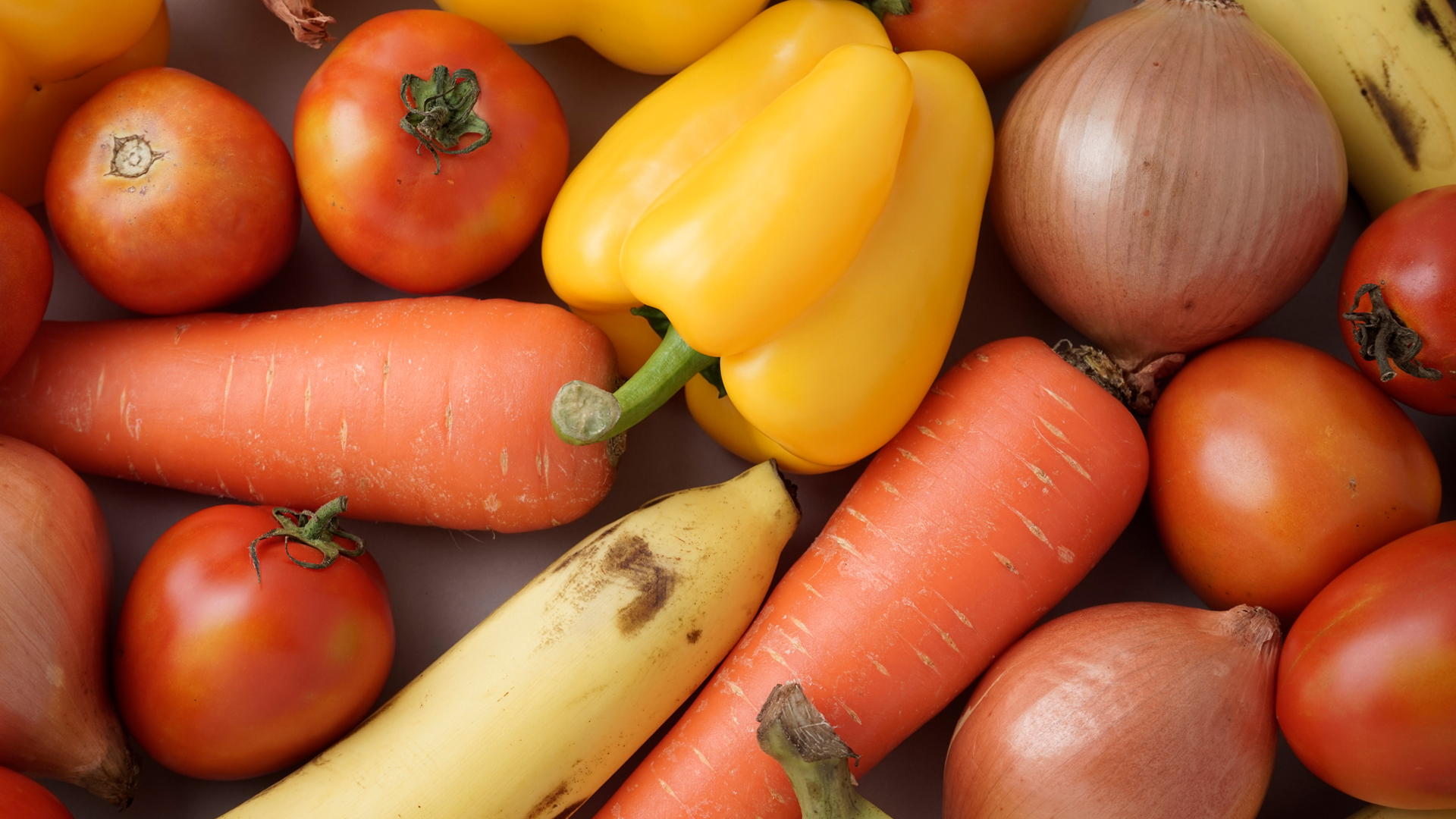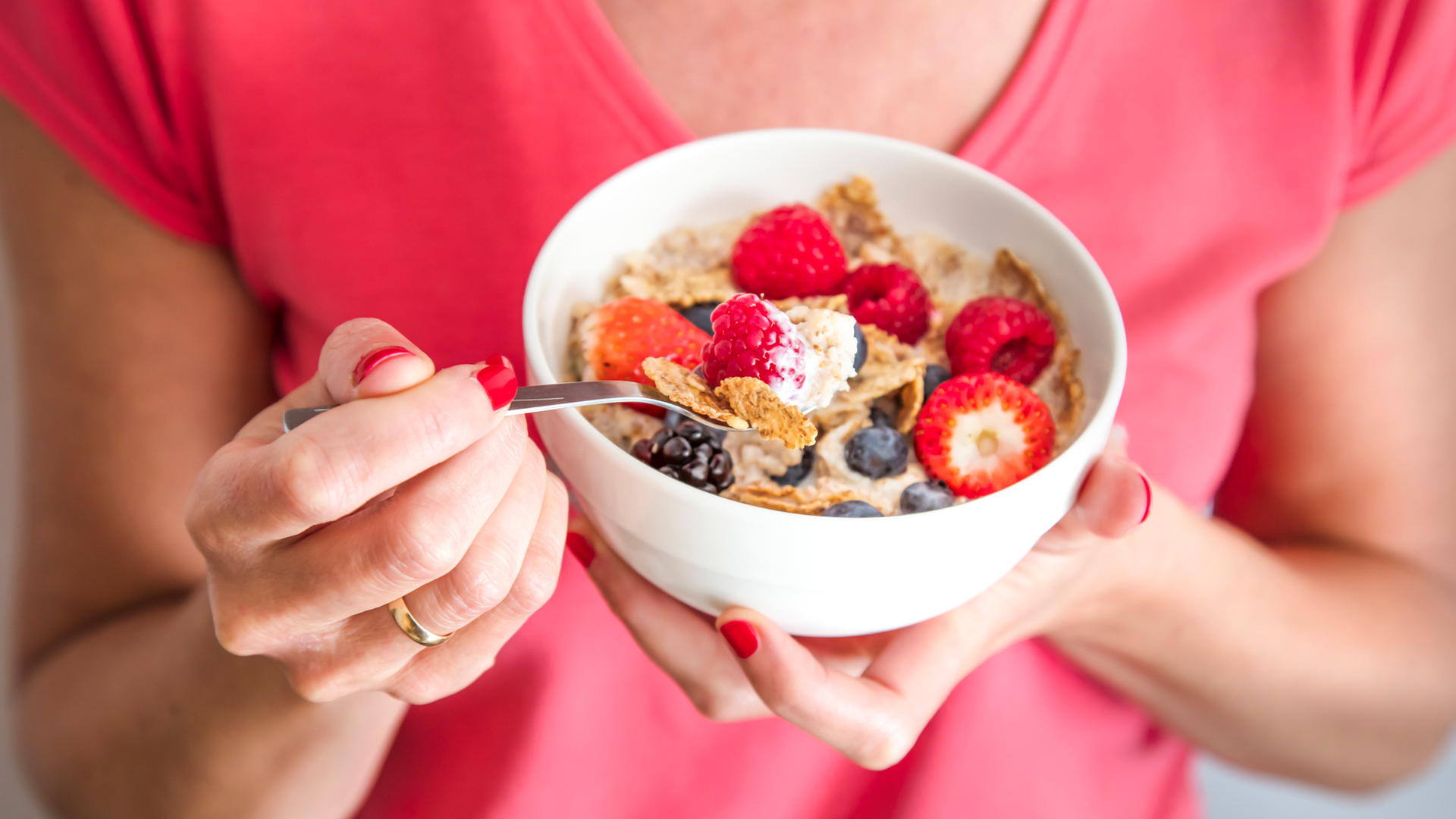Five ways to improve gut health
Looking for ways to improve gut health? An unhealthy gut can lead to a myriad of health issues. We spoke to a dietician for five easy ways to do this

Why is it important to improve gut health? More and more research is indicating that gut health affects so much more than just your digestive system. A healthy gut plays an intrinsic role in the overall health of the body, from your skin to your energy levels.
Our guts are full of a diverse range of microorganisms, which communicate with our brains through hormones and nerves, making them powerful forces in our lives and potentially impactful in the dietary choices we make. It is important to keep this gut microbiome healthy, diverse and functional to avoid digestive issues and keep our immune systems in good condition.
So how can you give yourself the best start in caring for your gut? We asked Cristy Dean, dietician and gut health specialist for Fettle and Bloom, for five ways to improve gut health when it’s not functioning as it should, from upping your fiber to the best probiotics.
Why should I improve my gut health?
While you may assume that your gut is in good working order, it is estimated that 60-70 million Americans experience digestive problems, making it a widespread and concerning problem.
“A healthy gut communicates with the brain through nerves and hormones,” says Dean. “It is important to have a healthy balance of bacteria and immune cells to help ward off potential infections.”
The more diverse your gut bacteria are, the better they are able to digest different types of food effectively and fight off diseases.
“A person has between 300-500 species of bacteria in their digestive tract,” adds Dean. “Our good bacteria enhances our immune system function, improves symptoms of depression, helps to combat obesity and is the foundation of our overall health in terms of the food we digest, nutrients we absorb and the fuel we use to power our body.”
So, what can you do to improve gut health?
Aim for variety
For a diverse microbiome, you need to be eating a wide range of different foods. Studies have indicated that gut bacteria break down food into digestible components small enough to penetrate our gut wall and enter our bloodstream. The wider the variety of foods we consume, the wider the variety of microorganisms populating our gut in order to digest them.
“A diet containing a wide variety of foods can lead to a more diverse microbiome.” says Dean. “If your diet is low in fiber and rich in fat and sugar, or restricted to eating the same foods every day, it will have low diversity.”

Take probiotics
You can get probiotics naturally from your diet, but some people choose to supplement. “Probiotics are a combination of live beneficial bacteria, or yeast that are native to our gut microbiome,” Dean explains. “Probiotics are made up of good bacteria that keep us healthy and well, to maintain a balance of bacteria that can get out of sync due to ill-health and disease.”
If you have symptoms of poor gut health, taking a probiotic supplement may help to rebuild your microbiome and support good gut health in the future. There are also several important benefits of probiotics for men. It is important to choose types that will reach the gut alive; if they are destroyed by your digestive system before they can reach their destination, there isn’t much point in taking them.
Consume prebiotics
So you’ve taken your probiotics, how do you make sure that these good bacteria you’ve eaten stay alive and healthy? Studies have shown that consuming prebiotic foods is an excellent way to support your gut microbiome, as it gives the good microorganisms things to consume, boosting their populations so there is no space for the bad microorganisms to get a foothold.
Dean recommends consuming prebiotic foods as part of a balanced diet. “Eating garlic, onions, berries, oats, pulses, legumes, nuts and seeds have been shown to promote the growth of beneficial bacteria, including bifidobacteria,” she says. “Some studies suggest prebiotics reduce risk factors for certain conditions by decreasing levels of insulin, triglycerides and cholesterol.”

Fermented foods
You may have seen lots of buzz around the benefits of fermented foods, with items like kefir (a fermented yogurt) becoming readily available in supermarkets. Or perhaps you have tried your hand at sourdough, the long-process bread that uses a fermented ‘mother’ as a base.
“Fermented foods such as yogurt, kimchi and sauerkraut can benefit the microbiome by enhancing its function and reducing the abundance of disease causing bacteria in the intestines, along with promoting the growth of beneficial bacteria Lactobacilli,” says Dean. “It is worth noting that the effects of probiotics and fermented foods are transient, so if stopped, the benefit will go away.”
Fiber-rich foods
Foods high in fiber provide our gut bacteria with plenty to break down, supporting their populations because our bodies cannot digest fiber on their own. The short-chain fatty acids produced from indigestible fibers are also very important for immune function, according to one 2019 study.
Fiber also functions as a bulking agent, helping to move indigestible food through the digestive tract and out of our bodies as waste. It delays the digestive process by being tough to break down, meaning that bacteria lower in our guts are provided with the opportunity to digest food into nutrients too. Low fiber diets often lead to constipation, because indigestible food spends longer in our systems not going anywhere.

The impact of antibiotics on gut health
One reason your gut health may be poor is if you recently took a course of antibiotics. While taking antibiotics is often unavoidable, they unfortunately can’t tell the difference between good bacteria and bad bacteria and can decimate the populations of good microorganisms in our guts. People commonly develop IBS after a course of antibiotics, with studies showing they can cause symptoms in people who have never experienced them before due to an increase in the permeability of the gut wall.
“Diarrhoea is a common side effect of taking antibiotics,” says Dean. “Their use can have several negative effects on the gut microbiota, including reduced species diversity, altered metabolic activity and the selection of antibiotic-resistant microorganisms. Overall, this can negatively affect the balance of bacteria in the gut.”
If you’ve recently taken a course of antibiotics, it may be beneficial to consume some of the foods above to help restore a healthy balance in your gut.
This article is for informational purposes only and is not meant to offer medical advice.
Sign up for the Live Science daily newsletter now
Get the world’s most fascinating discoveries delivered straight to your inbox.

Lou Mudge is a health writer based in Bath, United Kingdom for Future PLC. She holds an undergraduate degree in creative writing from Bath Spa University, and her work has appeared in Live Science, Tom's Guide, Fit & Well, Coach, T3, and Tech Radar, among others. She regularly writes about health and fitness-related topics such as air quality, gut health, diet and nutrition and the impacts these things have on our lives.
She has worked for the University of Bath on a chemistry research project and produced a short book in collaboration with the department of education at Bath Spa University.










